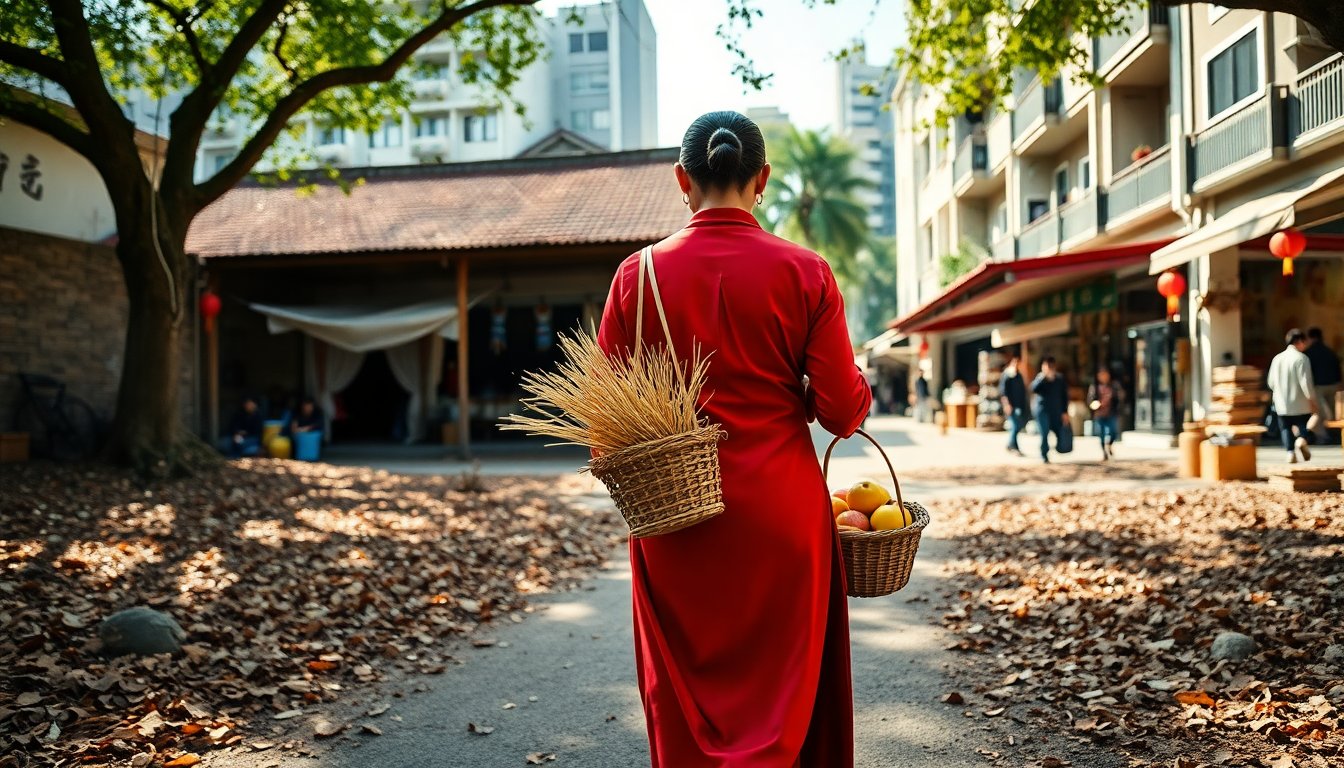Table of Contents
The Zhuang ethnic minority, the largest in China with an estimated population of 19 million, primarily resides in Guangxi province. Their customs reflect a profound respect for family and cultural heritage, particularly exemplified through a special ceremony known as the “returning to the maiden home.” This tradition, where married women don vibrant red or traditional attire and return to their birth families bearing gifts of grain and fruit, serves as a poignant reminder of familial ties in an era marked by rapid urbanization and intermarriage.
A Celebration of Family Ties
This heartwarming celebration, often humorously referred to as the “Queen’s Coronation” by netizens, encapsulates the essence of the Zhuang culture. The act of returning to one’s maiden home symbolizes not only the bond between married daughters and their families of origin but also the preservation of ancestral values. As urban life reshapes traditional dynamics, this ceremony emerges as a vital cultural expression, reinforcing the importance of familial connections.
The significance of this tradition lies in its ability to adapt to changing societal norms while maintaining its core values. In a fast-paced world where urbanization often distances individuals from their roots, the “returning to the maiden home” ceremony stands as a testament to the enduring relevance of traditional practices.
Historical Context and Modern Adaptations
Historically, the roots of this ceremony can be traced back to Han customs, where a newlywed woman would initially visit her husband’s family on the first day of the Lunar New Year and then return to her family on the second day. This exchange not only facilitated familial bonding but also played a crucial role in reinforcing societal structures. Today, as the Zhuang community increasingly intermingles with the Han population, the ceremony has evolved into a modern expression of traditional filial piety.
In this context, the ceremony is more than a mere cultural remnant; it has become a vital aspect of identity for the Zhuang people. With urbanization bringing changes to family structures and societal norms, the celebration serves as a means to honor the past while embracing the present. Through this ritual, the Zhuang ensure that their cultural heritage remains vibrant and relevant.
Impact of Urbanization on Cultural Practices
The rapid urbanization of China poses challenges to many ethnic traditions; however, for the Zhuang, it has also opened doors for cultural revival. The “returning to the maiden home” ceremony highlights the adaptive nature of cultural practices, showcasing how traditions can evolve while remaining true to their roots. As urban life increasingly integrates diverse populations, the blending of customs can lead to richer cultural experiences.
Moreover, this celebration is not just a personal affair; it has become a public spectacle, attracting attention from both locals and tourists alike. The vibrant colors of the traditional attire and the joyful atmosphere surrounding the ceremony contribute to a sense of community that transcends individual families. As the Zhuang navigate the complexities of modern life, they continue to showcase the beauty of their traditions, reinforcing the notion that cultural heritage can flourish even in the face of change.


